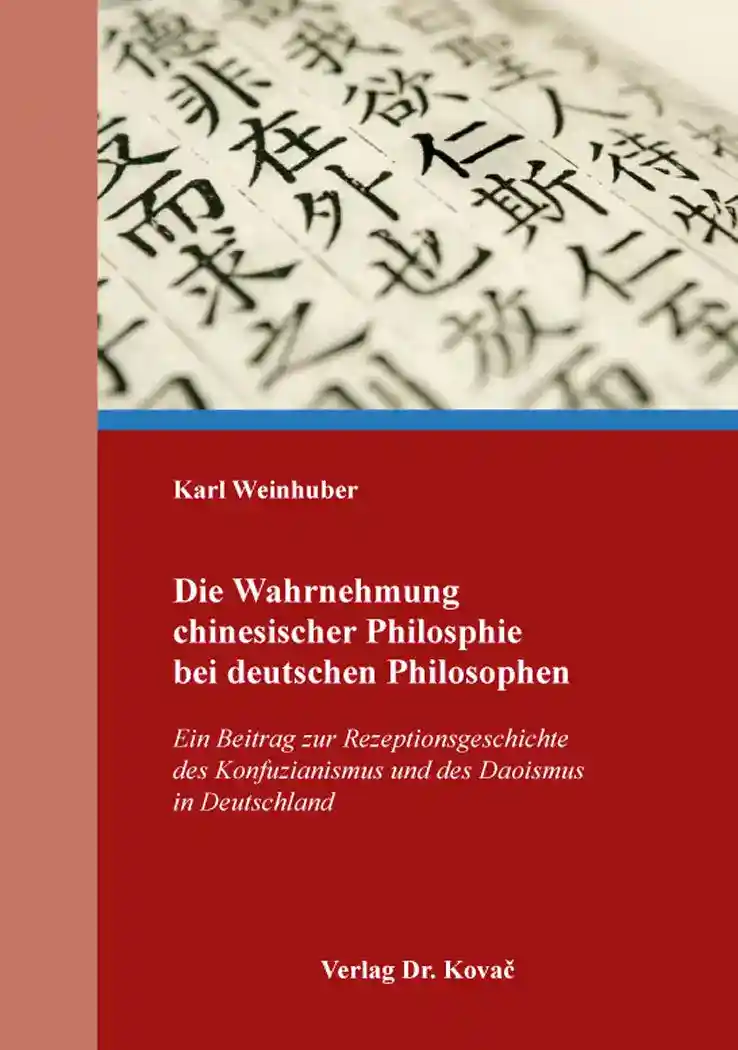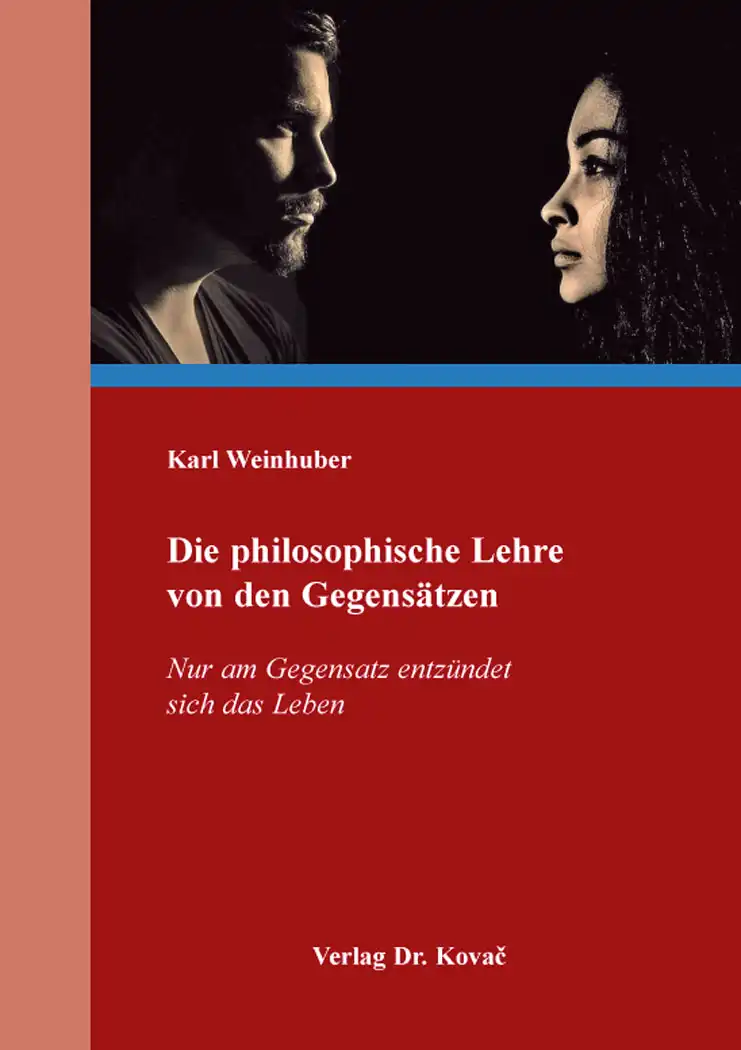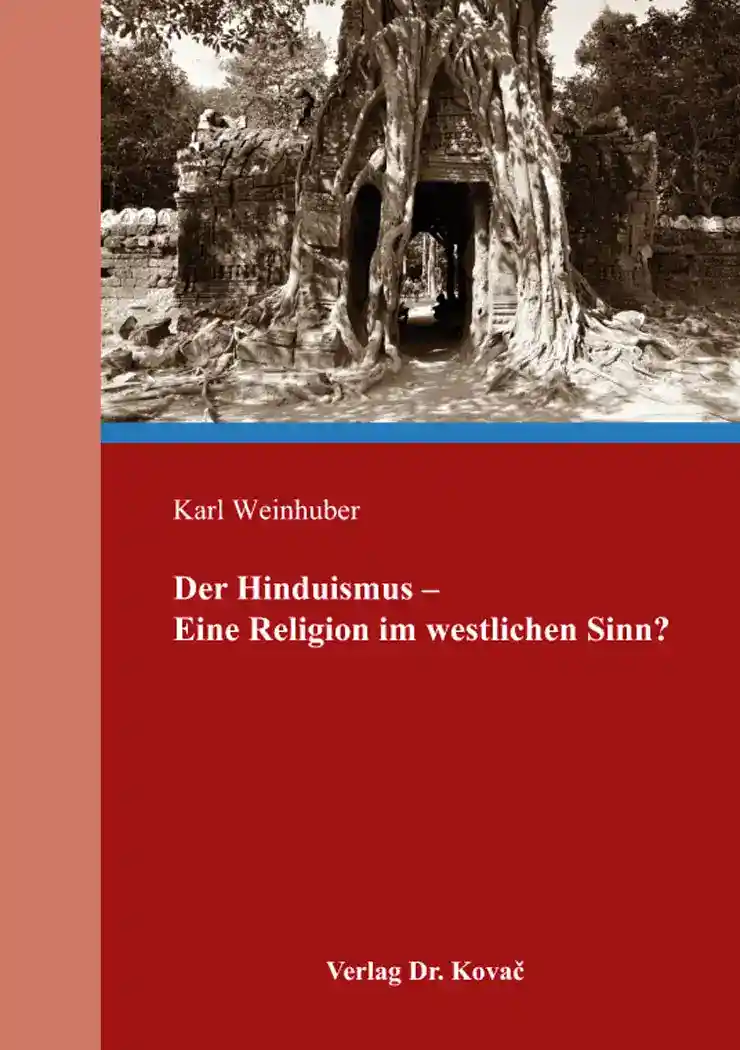Karl WeinhuberDie Wahrnehmung chinesischer Philosphie bei deutschen Philosophen
Ein Beitrag zur Rezeptionsgeschichte des Konfuzianismus und des Daoismus in Deutschland
BOETHIANA – Forschungsergebnisse zur Philosophie, volume 149
Hamburg 2019, 158 pages
ISBN 978-3-339-10520-2 (print) |ISBN 978-3-339-10521-9 (eBook)
About this book deutschenglish
The book is a historic work with the goal of describing how Chinese philosophy was perceived by German thinkers. The primary representatives of Daoism, Laozi and Zhuangzi, as well as their works and concepts will be introduced and clarified. Additionally, Confucianism and its works will be described. After the introduction to Chinese philosophy, its historical reception in Germany will be illustrated. As representatives of the 17th and 18th centuries, Leibniz and Wolff were especially impressed by the ethics and enlightened thinking of Confucianism. Their information originated almost exclusively from missionaries of the Jesuit order, which transported a positive image of China to Europe. This image turned negative when the Jesuit order was forbidden in China. Negative accounts from travelers shaped the image of China, which also influenced Kant and Herder. It was not until the middle of the 19th century that the Protestant mission in Europe and Germany aroused interest in Daoism. The Daoist works were translated into European languages. The first person to address the Chinese philosophy in the 19th century was Hegel. Schelling occupied himself more intensely than Hegel with Daoism which he, unlike Hegel, judged to be largely speculative. Schopenhauer, who was very open to eastern religions and philosophies, saw in Daoism a doctrine of inner order. Buber was the first philosopher of the 20th century who was inspired by Daoism. He translated the work of Zhuangzi from English into German and wrote an extensive afterword as well. Jaspers saw in Laozi an Asian mystic whom he counted to be among the great philosophers of history. Even Heidegger dealt in detail with Laozi and Zhuangzi. He seems to have extracted several ideas from Daoism and – paraphrasing them – inserted them into his own work. Lastly, in the 20th century Bloch also dealt intensely with Daoism. For him Laozi was a mystic and a teacher. In the conclusion of the book the most important aspects will be summarized again so that both a general and differentiated picture of the reception of Chinese philosophy in Germany arises.
Keywords
Arthur SchopenhauerChinesische PhilosophieDaoismusDeutsche PhilosophenDeutschlandFriedrich Wilhelm SchellingGeorg Wilhelm Friedrich HegelKonfuzianismusLaoziLehreLeibnizPhilosphieRezeptionsgeschichteRichard WilhelmWahrnehmungZhuangziIhr Werk im Verlag Dr. Kovač

Möchten Sie Ihre wissenschaftliche Arbeit publizieren? Erfahren Sie mehr über unsere günstigen Konditionen und unseren Service für Autorinnen und Autoren.
Weitere Bücher des Autors
Die philosophische Lehre von den Gegensätzen
Nur am Gegensatz entzündet sich das Leben
Hamburg 2024, ISBN 978-3-339-13944-3 (Print) |ISBN 978-3-339-13945-0 (eBook)
Der Hinduismus – Eine Religion im westlichen Sinn?
Hamburg 2017, ISBN 978-3-8300-9478-4 (Print) |ISBN 978-3-339-09478-0 (eBook)


